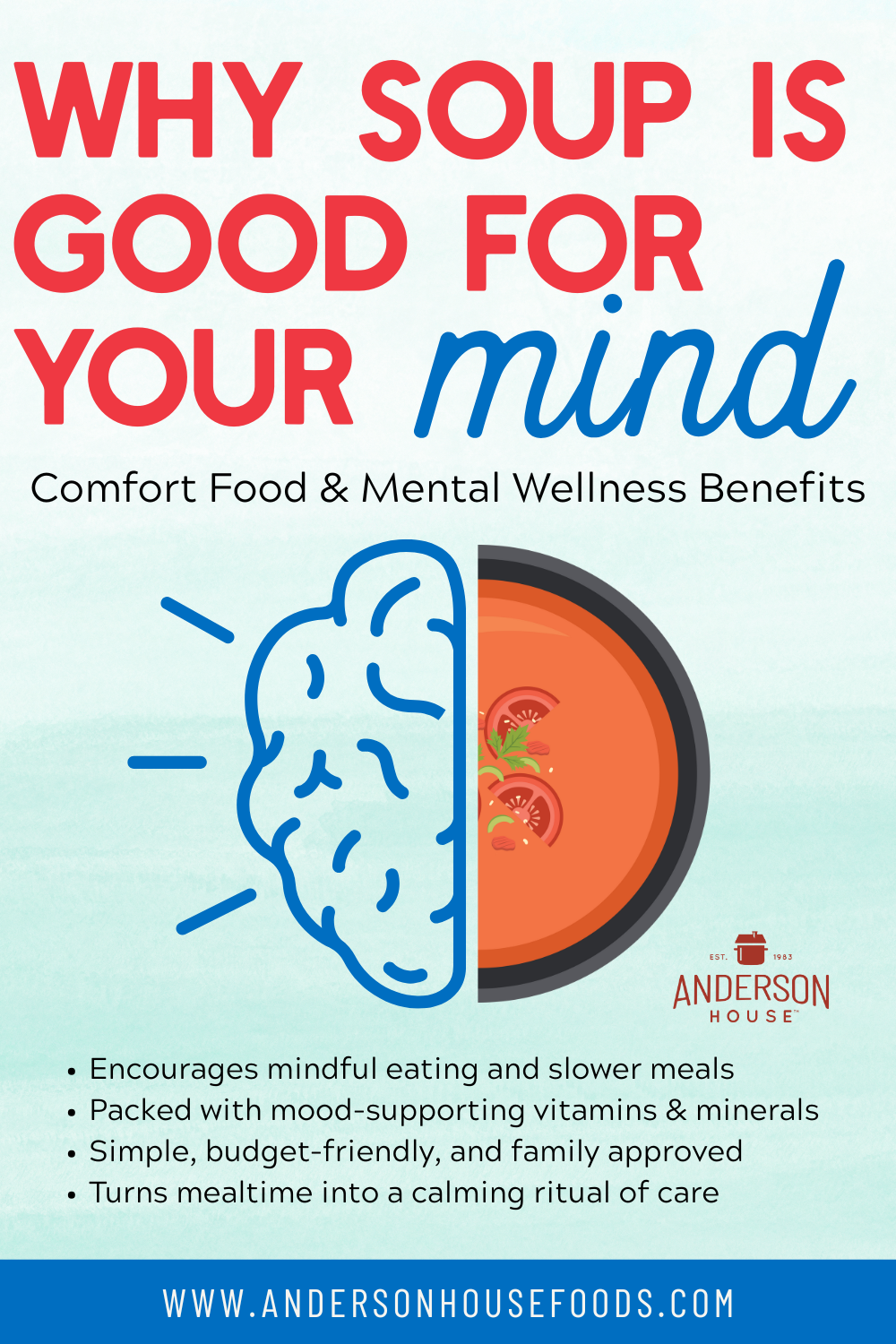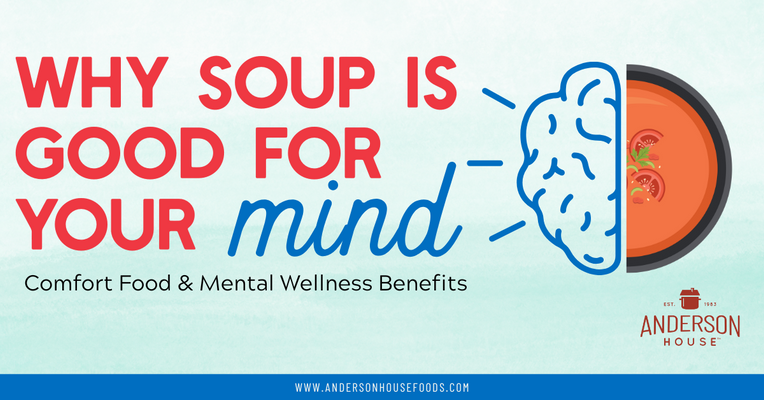Why Soup Is Good for Your Mind: Comfort Food & Mental Wellness Benefits
Posted by Jane Sandwood on Mar 9th 2018
Updated for 2025
There’s something timeless about a warm bowl of soup. Whether it’s homemade chicken noodle, a hearty bean chili, or a comforting creamy chowder, soup isn’t just good for your body — it can be good for your mind, too.
Of course, soup alone isn’t a cure for mental health conditions. But as part of a balanced lifestyle, it can offer real comfort, connection, and mindful nourishment — all of which support emotional well-being.
This article is for informational purposes only and is not a substitute for professional medical advice, diagnosis, or treatment. If you’re struggling with mental health challenges, please seek help from a qualified mental health professional.
Soup is the original comfort food
When life feels overwhelming, soup offers warmth, routine, and reassurance. Research has found that comfort foods can evoke positive emotions and reduce feelings of loneliness by connecting us to memories and traditions (Troisi & Gabriel, 2011).
A pot simmering on the stove or a quick soup mix bubbling on the burner can slow us down and bring a sense of calm to busy days. Explore our all-natural soup mixes to make comforting meals even easier.
Mindful eating made simple
Soup naturally encourages slower eating: it’s hot, often eaten with a spoon, and enjoyed in cozy moments. Slower, mindful eating can help reduce stress and support digestive health, according to Harvard Health Publishing (2020).
Adding fresh veggies, grains, or lean proteins to your soup mix can become a creative, grounding ritual that turns an ordinary meal into a moment of self-care.
Packed with feel-good nutrients
Many soups — especially those filled with colorful vegetables, beans, and whole grains — are rich in vitamins and minerals linked to mood regulation.
For example:
-
B vitamins (found in legumes and leafy greens) help support brain function and may reduce fatigue.
-
Vitamin C (from tomatoes, peppers, and broccoli) has antioxidant effects that help combat inflammation linked to stress.
-
Omega-3-rich ingredients (like salmon or flaxseed) may positively impact mood, according to a meta-analysis published in Translational Psychiatry (Guu et al., 2019).
By starting with a soup mix and adding fresh ingredients, you can easily tailor your meal to your taste and nutritional needs.
Affordable, easy, and family-friendly
Cooking can feel intimidating — but soup keeps it simple.
-
Toss in leftovers or frozen veggies.
-
Stretch proteins further by adding beans or lentils.
-
Make a big batch and freeze extra portions for busy nights.
This affordability and flexibility mean less mealtime stress — and fewer last-minute drive-thru trips. Eating nutritious, balanced meals without financial strain can support overall mental wellness, as financial stress is strongly tied to mental health concerns (APA, 2022).
A ritual of care
From simmering soup on a Sunday afternoon to sharing bowls around the dinner table, soup often becomes a ritual — and rituals can help us feel grounded, according to the Journal of Positive Psychology (Norton & Gino, 2014).
Even something as simple as choosing fresh toppings — herbs, crunchy seeds, or a swirl of yogurt — turns soup into an act of creativity and self-kindness.
Final thoughts
Soup isn’t magic — it won’t cure depression or erase anxiety. But as part of a balanced lifestyle, it can bring comfort, warmth, and a sense of connection that supports emotional well-being.
So next time you’re feeling run-down, stressed, or just chilly, consider ladling up a bowl of soup. Let it be more than a meal: let it be a moment of care.

References & suggested reading:
-
Troisi, J. D., & Gabriel, S. (2011). “Chicken soup really is good for the soul: ‘Comfort food’ fulfills the need to belong.” Psychological Science, 22(6), 747–753.
-
Guu, T.-W., et al. (2019). “International Society for Nutritional Psychiatry Research Practice Guidelines for Omega-3 Fatty Acids in the Treatment of Major Depressive Disorder.” Translational Psychiatry.
-
Harvard Health Publishing. (2022). “Slow down—and try mindful eating”
-
American Psychological Association (APA). (2022). “Stress in America™ 2022.”
-
Norton, M. I., & Gino, F. (2014). “Rituals alleviate grieving for loved ones, lovers, and lotteries.” Journal of Experimental Psychology: General.

